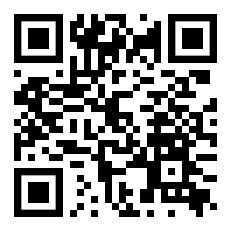Financial markets remain under pressure from Friday’s Jerome Powell speech at Jackson Hole
On the other hand, high levels of federal debt and continued increases in government spending will contribute to the public perception that inflation will remain high. But according to analysts, because high inflation was driven by fiscal spending in response to the Covid-19 pandemic, simply raising interest rates will not be enough to lower inflation. Thus, the Fed can reduce inflation only when the national debt is successfully stabilized with credible future budget plans. New research shows that without limits on budget spending, raising rates will make the cost of debt more expensive and raise inflation expectations even more.
German 10-year bond yields rose by 10 bps to a two-month high. European Central Bank (ECB) governor Isabel Schnabel warned over the weekend that central banks must act decisively to fight inflation, even if it drags the economy into recession. Other representatives of the governing council, François Villeroy and politician Martins Kazaks, also signaled another significant rate hike in September. ECB chief economist Lane, considered one of the most dovish on the committee, also called for higher rates, but perhaps at a less aggressive pace. Currently, markets are counting on a 76% chance that the ECB will raise rates by 75 basis points in September, up from 24% last week.
Goldman Sachs Group, Inc. expects the UK economy to slip into recession later this year, with the risk of a deep recession amid a surge in energy prices. The UK gross domestic product is expected to fall about 1% by mid-2023.
The EU will hold an emergency meeting of energy ministers on September 9 to discuss rising energy prices.
Crude oil prices jumped about 4% on Monday as expectations of production cuts by the expanded OPEC+ cartel grow by the day. The Organization of Petroleum Exporting Countries, led by Saudi Arabia, and its ten oil-producing partners will meet on September 5. Nearly every country in the alliance, except Saudi Arabia and the United Arab Emirates, now produces less than its quota. Clearly, OPEC+ countries are getting greedy and trying to push oil prices back to this year’s highs.
Asian markets traded flat yesterday. Japan’s Nikkei 225 (JP225) gained 0.79%, Hong Kong’s Hang Seng (HK50) ended the day down by 0.73%, and Australia’s S&P/ASX 200 (AU200) closed at 0.29%.
The Chinese yuan fell to its lowest level in two years as a hawkish Fed signaled further rate hikes. The Bank of Japan and the People’s Bank of China (PBOC) are the only two major central banks that are not on a tightening cycle. Because of this, the Japanese yen and Chinese yuan are under pressure.
S&P 500 (F) (US500) 4,030.61 −27.05 (−0.67%)
Dow Jones (US30) 32,098.99 −184.41 (−3.03%)
DAX (DE40) 12,892.99 −78.48 (−0.61%)
FTSE 100 (UK100) 7,427.31 −52.43 (−0.70%)
USD Index 108.79 −0.02 (−0.02%)
News feed for: 2023.07.04
- Spanish Consumer Price Index (m/m) at 10:00 (GMT+3);
- German Consumer Price Index (m/m) at 15:00 (GMT+3);
- US CB Consumer Confidence (m/m) at 17:00 (GMT+3);
- US JOLTs Job Openings (m/m) at 17:00 (GMT+3);
- US FOMC Member Williams Speaks at 18:00 (GMT+3).
This article reflects a personal opinion and should not be interpreted as an investment advice, and/or offer, and/or a persistent request for carrying out financial transactions, and/or a guarantee, and/or a forecast of future events.
